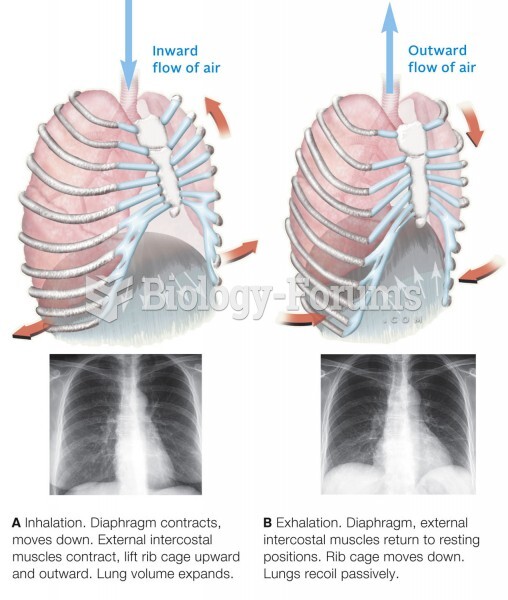|
|
|
An identified risk factor for osteoporosis is the intake of excessive amounts of vitamin A. Dietary intake of approximately double the recommended daily amount of vitamin A, by women, has been shown to reduce bone mineral density and increase the chances for hip fractures compared with women who consumed the recommended daily amount (or less) of vitamin A.
All adults should have their cholesterol levels checked once every 5 years. During 2009–2010, 69.4% of Americans age 20 and older reported having their cholesterol checked within the last five years.
There are more bacteria in your mouth than there are people in the world.
A seasonal flu vaccine is the best way to reduce the chances you will get seasonal influenza and spread it to others.
Walt Disney helped combat malaria by making an animated film in 1943 called The Winged Scourge. This short film starred the seven dwarfs and taught children that mosquitos transmit malaria, which is a very bad disease. It advocated the killing of mosquitos to stop the disease.
 Nose, nasal cavity, and pharynx: (A) nasal cartilages and external structure; (B) meatus and positio
Nose, nasal cavity, and pharynx: (A) nasal cartilages and external structure; (B) meatus and positio
 Renal transplant. A transplanted kidney is placed within the pelvic cavity below the location of the
Renal transplant. A transplanted kidney is placed within the pelvic cavity below the location of the





